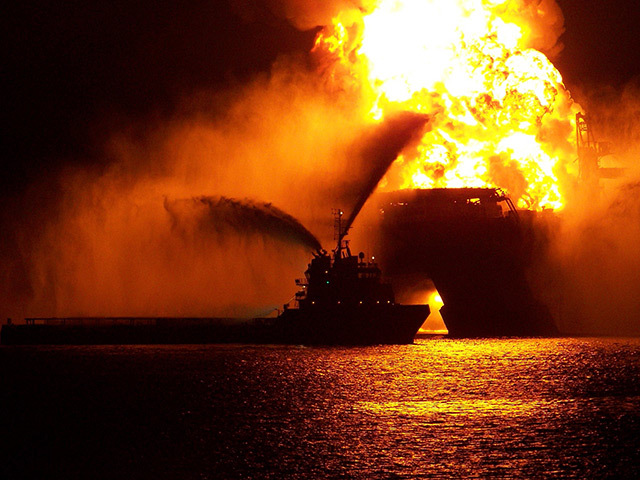
BP Plc asked the US judge in charge of thousands of oil-spill damage lawsuits to review a ruling that exposes the company to as much as $18billion in fines, saying it was based on evidence he said he wouldn’t consider.
BP claims the Sept. 4 ruling that the company was grossly negligent in causing the 2010 Gulf of Mexico oil spill was based on expert testimony that US District Judge Carl Barbier of New Orleans said he would exclude from the 2013 trial over who caused the disaster. BP asked Barbier to change his finding or grant a new trial.
Barbier improperly relied on the opinion of an expert witness hired by Halliburton Co. in determining that metal pipe lining in the Macondo well buckled and ruptured near the bottom, preventing cement from sealing the well against leaks, BP said yesterday in a court filing.
Barbier cited testimony by Gene Beck, the Halliburton expert, in his 153-page decision in which BP was ruled to be 67% at fault for the fatal well blowout that destroyed the Deepwater Horizon drilling rig off the Louisiana coast and led to the worst offshore oil spill in US history.
BP previously set aside $43 billion to cover all costs of the spill and has already paid more than $28 billion in spill response, cleanup costs and damages.
The judge ruled that rig owner Transocean Ltd. was 30 percent liable for causing the disaster and cement contractor Halliburton 3 percent liable. Barbier said neither of the subcontractors acted with willful recklessness during the drilling operation.
Barbier’s gross-negligence verdict exposes BP to heightened penalties of as much as $18billion under the US Clean Water Act, depending on the size of the spill and how much harm he determines it inflicted. The Justice Department claims more than 4 million barrels of oil spewed into the gulf.
Barbier has set a trial for January to calculate that fine.
Wyn Hornbuckle, a Justice Department spokesman, didn’t immediately respond to an e-mail after regular business hours yesterday seeking comment on BP’s filing. Emily Mir, a spokeswoman for Houston-based Halliburton, declined to comment on it.
Steve Herman, one of the lead attorneys for victims suing BP for spill damages, didn’t immediately respond to an e-mail after regular business hours yesterday seeking comment.
BP asked Barbier in yesterday’s filing to amend his ruling to exclude any improper reliance on Beck’s testimony. The company’s lawyers weren’t given a chance to refute Beck because “BP reasonably believed that the casing-breach theory was not a live issue at trial,” it said.
There is “no other evidence in the record to support this weakened-casing element, which is central to the casing-breach theory, and therefore that theory cannot stand,” BP said. “This court should amend its findings and judgment to eliminate the casing-breach theory, determine that BP did not engage in gross negligence through a series of negligent actions, and revisit the order’s allocation of fault accordingly.”
The case is In re Oil Spill by the Oil Rig Deepwater Horizon in the Gulf of Mexico on April 20, 2010, MDL-2179, U.S. District Court, Eastern District of Louisiana (New Orleans).